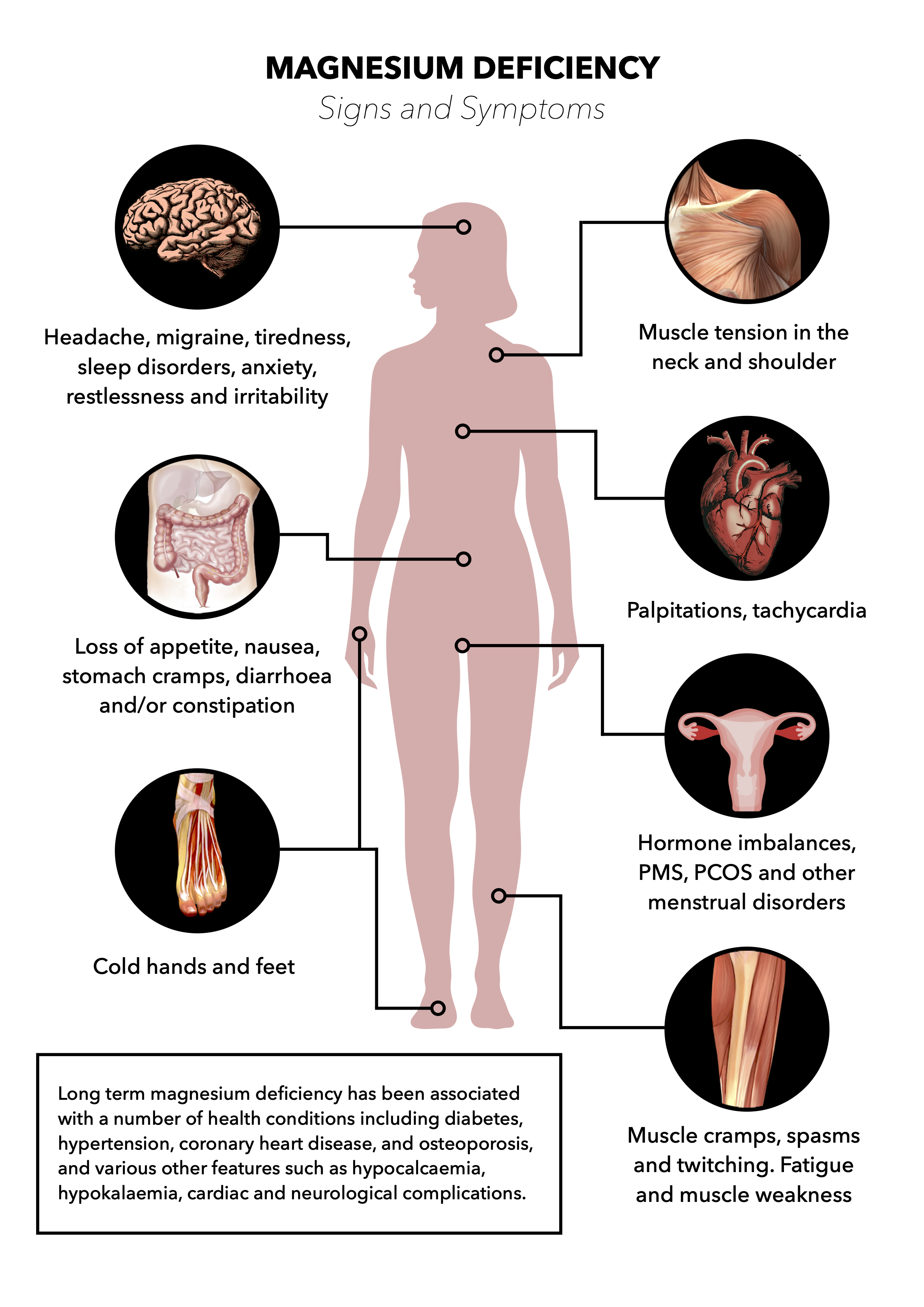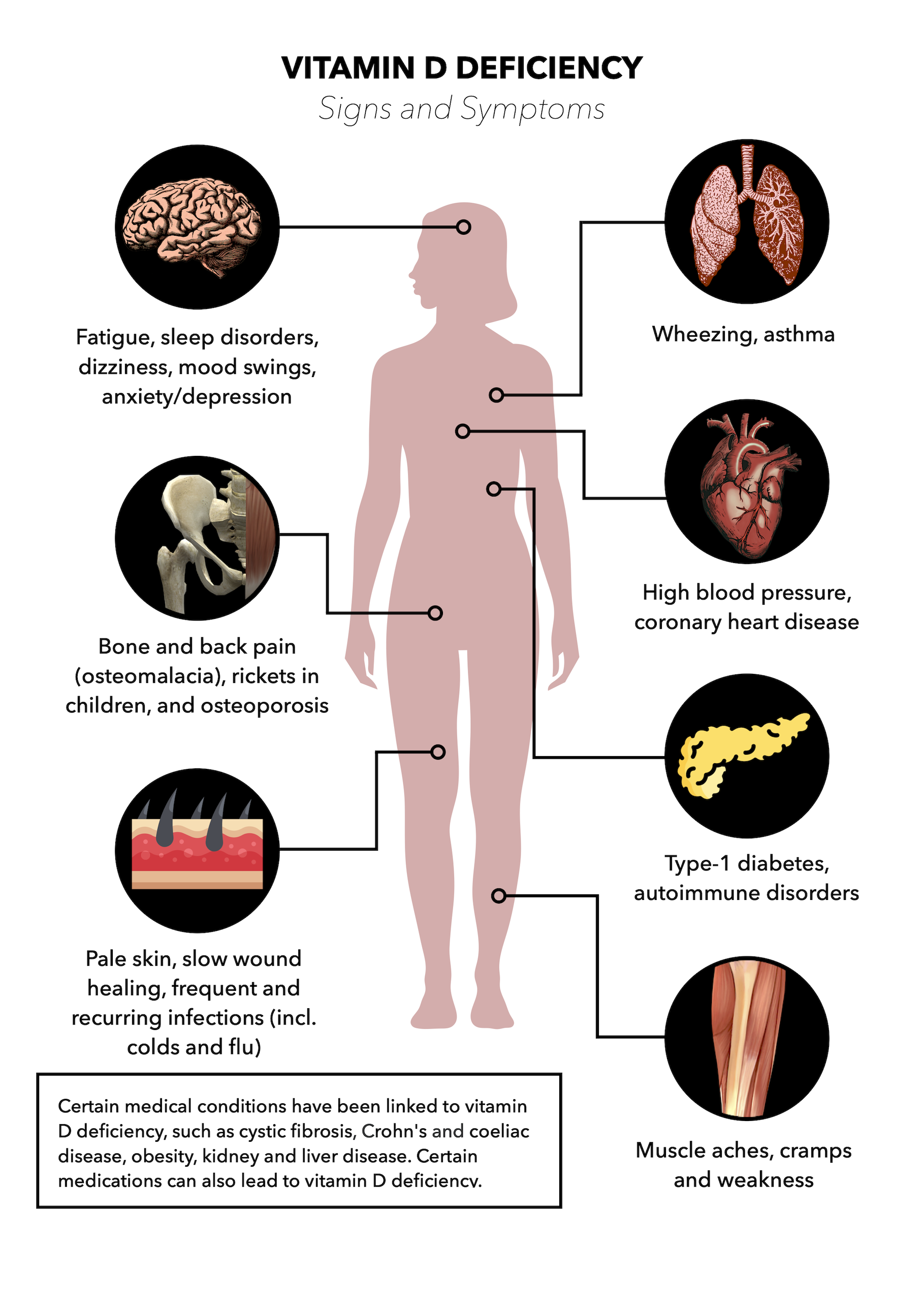Immunity and Detoxification: The Role of Magnesium and Vitamin D
Vitamin D and magnesium are essential nutrients that play a crucial role in many physiological processes in the body. Vitamin D is required for calcium absorption, bone health, and immune function, while magnesium is involved in many enzymatic reactions, energy production, DNA and RNA synthesis, nerve function, and muscle relaxation.
However, what many people don't know is that magnesium is also required for the activation of vitamin D in the body. Without magnesium, the conversion of vitamin D into its active form cannot be done effectively. The latter is necessary for the absorption of calcium from the intestines.
When someone takes high doses of vitamin D supplements without addressing low levels of magnesium, it can potentially lead to the depletion of magnesium. This is because when the body uses up its magnesium stores for the activation of vitamin D.
Magnesium is also involved in the regulation of the HPA axis and plays a role in the production and regulation of cortisol levels. Under chronic stress, the body may require more magnesium to maintain normal cortisol levels, leading to a depletion of magnesium stores — particularly if accompanied by a low intake of magnesium-rich foods. Magnesium deficiency can further exacerbate the effects of the stress response by causing symptoms such as anxiety, depression, and fatigue.
One of the other effects of the stress response is the suppression of the immune system and disturbed vitamin D receptor sites.
Magnesium Deficiency
Magnesium is an essential mineral that is involved in over 300 enzymatic reactions in the body, including energy production, nerve function, and muscle relaxation. However, magnesium deficiency is also becoming more common, due to poor diet choices, chronic stress and sleep deprivation.
Symptoms of magnesium deficiency can include muscle cramps, tremors, and fatigue. Magnesium deficiency can also increase the risk of various health conditions, including heart disease, diabetes, and anxiety.
Vitamin D Deficiency
Vitamin D is a fat-soluble vitamin that is necessary for bone health, immune system function, and calcium regulation in the body. It is commonly known as the “sunshine vitamin” because the body can produce it when the skin is exposed to sunlight. However, vitamin D deficiency is becoming more prevalent due to lifestyle changes, such as spending more time indoors and wearing sunscreen.
Symptoms of vitamin D deficiency can include fatigue, muscle weakness, and bone pain. Vitamin D deficiency can also increase the risk of various health conditions, including osteoporosis, heart disease, and certain cancers.
Detoxification
Detoxification is the process by which the body eliminates harmful toxins and waste products. The liver, kidneys, and lymphatic system are all involved in this process. However, if the body is not functioning optimally, toxins can accumulate and cause damage to cells and tissues.
Toxicity can occur from various sources, including environmental pollutants, processed foods, and medications. Symptoms of toxicity can include headaches, skin problems, and digestive issues.
There is a close relationship between vitamin D and magnesium deficiencies and detoxification. Both vitamin D and magnesium are involved in many enzymatic reactions in the body, including those involved in detoxification.
Vitamin D is necessary for the production of glutathione, a powerful antioxidant that helps to protect the body from oxidative stress and toxins. Magnesium is also involved in the production of glutathione, as well as the regulation of liver function, which is critical for detoxification.
Tips for Maintaining Adequate Levels of Vitamin D and Magnesium for Optimal Detoxification
Get adequate sun exposure: Spending time outdoors in the sun can help the body produce vitamin D naturally. Aim for 15-20 minutes of sun exposure per day, without sunscreen.
Eat a balanced diet: Eat a diet rich in magnesium-containing foods, such as leafy greens, nuts, and whole grains. Also, include foods rich in vitamin D, such as fatty fish, egg yolks, and fortified dairy products.
Consider supplementation when it is necessary: If you are unable to get enough vitamin D or magnesium through diet or sun exposure, consider taking supplements. Be sure to talk to your healthcare provider before taking any supplements. They may recommend supplements with ideal therapeutic doses that are best for you.
Stress management: Chronic stress can deplete the body's magnesium stores, so it's important to manage stress levels through practices such as meditation, yoga, and deep breathing.
Reduce your exposure to environmental toxins (indoor and outdoor pollution), such as air pollution, tap water, plastic and nonstick cookware and chemical cleaners. Also, try to eat a diet that is low in processed foods and artificial additives. Chose organic foods as best as possible and be aware of imported foods.
Detox Recipe by Exquisite Private Chef.
Immunity
The immune system relies on many nutrients for optimum function, but deficiencies, particularly in vitamin D and magnesium can weaken the immune system, making the body more vulnerable to infections and diseases, including autoimmune diseases.
Vitamin D Deficiency and Immunity
Vitamin D is essential for immune system function, as it helps to activate and regulate immune cells, such as T cells and B cells.
Studies have shown that vitamin D deficiency is associated with an increased risk of respiratory infections, such as the flu and pneumonia. Vitamin D deficiency has also been linked to autoimmune diseases, such as multiple sclerosis and rheumatoid arthritis.
Magnesium Deficiency and Immunity
Magnesium is another essential nutrient that plays a critical role in immune system function. Magnesium is involved in the production of cytokines, which are signalling molecules that regulate immune cell activity.
Magnesium also plays a role in the production of antibodies, which are proteins that help the body recognize and fight off harmful pathogens. Moreover, magnesium is involved in the production of antioxidant defences, which protect the body against free radical damage (oxidative stress).
Oxidative stress occurs when the antioxidant defences of the body cannot extinguish free radical damage (particularly inside the mitochondria, the energy factory of the body), and it can lead to cellular damage and inflammation.
Chronic inflammation can lead to various health conditions, including thyroid dysfunction, neuroinflammation and neurodegeneration, cancer, cardiovascular disease, and autoimmune diseases.
Again, it is essential to maintain an adequate intake of vitamin D and magnesium-rich foods and supplement if necessary, even more so during stressful times, winter, and when exercising vigourously.
Always consult your health practitioner before supplementing, as indicated earlier, supplementing with certain nutrients can lead to the depletion of stores of others. Plus, certain supplements must be taken with food. Do not exceed the recommended dosage.
References
Schwalfenberg, GK. Genuis, SJ. (2017). The Importance of Magnesium in Clinical Healthcare. Scientifica. 2017, 4179326. doi:10.1155/2017/4179326
Rosanoff, A. Dai, Q. Shapses, SA. (2017). Essential nutrient interactions: Does low or suboptimal magnesium status interact with vitamin D and/or calcium status? Advances in Nutrition. 8(3), pp. 428-437. doi:10.3945/an.116.014223
DiNicolantonio, JJ. O’Keefe, JH. (2018). Importance of maintaining magnesium adequacy in preventing chronic disease. Current Opinion in Clinical Nutrition and Metabolic Care. 21(5), pp. 333-338. doi:10.1097/MCO.0000000000000488
Rybicka, I. Sikora, E. (2020). The role of vitamin D and calcium and magnesium dysregulation in the pathogenesis of age-related diseases. Aging Clinical and Experimental Research. 32(8), pp. 1413-1423. doi:10.1007/s40520-020-01532-9
Song, Y. Manson, JE. (2012). Vitamin D and calcium supplementation in cardiovascular disease prevention. Journal of the American College of Cardiology. 60(7), pp. 687-690. doi:10.1016/j.jacc.2012.05.019
Kriegel, MA. (2019). Magnesium and immune function: an overview. Magnesium Research. 32(3), pp. 89-96. doi:10.1684/mrh.2019.0440
Jolliffe, DA. Griffiths, CJ. Martineau, AR. (2013). Vitamin D in the prevention of acute respiratory infection: systematic review of clinical studies. Journal of Steroid Biochemistry and Molecular Biology. 136, pp. 321-329. doi:10.1016/j.jsbmb.2012.11.017
Grant, WB. et al. (2020). Evidence that vitamin D supplementation could reduce risk of influenza and COVID-19 infections and deaths. Nutrients. 12(4), p. 988. doi:10.3390/nu12040988
Aranow, C. (2011). Vitamin D and the immune system. Journal of Investigative Medicine. 59(6), pp. 881-886. doi:10.2310/JIM.0b013e31821b8755
Mousa, A. et al. (2018). Vitamin D and cardiometabolic risk factors and diseases. Minerva Endocrinologica. 43(3), pp. 220-236. doi:10.23736/S0391-1977.17.02748-2
Razzaque, MS. (2018). Magnesium: Are we consuming enough? Nutrients. 10(12), 1863. doi:10.3390/nu10121863



